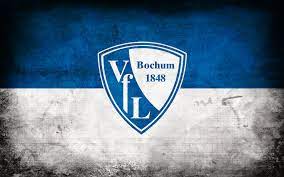Bayer Leverkusen Football Club has long been a prominent name in the world of football, known for its rich history and consistent performance across various competitions. Founded in 1904, this German club has made significant contributions not only to the Bundesliga but also to European football. From passionate fans to formidable rivalries, they embody the spirit of the game. This blog post delves deep into the legacy of Bayer Leverkusen, exploring their achievements, player development, ku bet iconic moments, and impact on the global football landscape.
The Formation and Early Years of Bayer Leverkusen Football Club
The origins of Bayer Leverkusen Football Club are deeply rooted in the industrial era of Germany. Established by employees of the pharmaceutical giant Bayer, the club was formed as a means of fostering community through sports.
In the heart of Leverkusen, a city that emerged from the Bayer factory, the club quickly became more than just a local team; it evolved into a symbol of pride for both workers and residents alike. The early years were marked by grassroots efforts to build a solid foundation for the club, focusing on youth participation and community involvement.
The Birth of a Club
Bayer Leverkusen was officially founded on July 1, 1904, originally known as FC Bayer 04 Leverkusen. The club’s establishment coincided with a period of political and social change in Germany, as labor rights movements began to find their footing.
The founders envisioned the club as a means to promote physical fitness among workers, creating an environment where teamwork and camaraderie could flourish. As football’s popularity grew, so did Bayer Leverkusen’s ambitions. They started competing in local leagues, gradually working their way up the ranks.
Challenges and Determination
As is common in the formation of many clubs, Bayer Leverkusen faced numerous challenges in its initial years. Competing against established teams required not only skill but also resilience. The players were predominantly amateurs, which limited their resources and exposure to the sport.
However, determination and commitment prevailed, and Bayer Leverkusen slowly carved out its own niche. Their first major achievement came in the late 1940s when the club successfully moved into the Oberliga West, one of the higher tiers of German football at the time. This marked a pivotal moment, laying the groundwork for future success.
Professionalism Takes Root
The transition from amateurism to professionalism was crucial for Bayer Leverkusen. By the 1970s, the Bundesliga had become the pinnacle of German football, and Bayer Leverkusen aimed to be part of the elite competition.
This era witnessed significant investments in scouting and development programs. With a focus on nurturing young talent, the club began to see a steady influx of promising players who would go on to leave their mark on German football. The desire to compete on the national stage propelled Bayer Leverkusen forward, setting the stage for future triumphs.
Rise to Prominence: Successful Eras and Milestone Achievements
Bayer Leverkusen experienced a meteoric rise to prominence, particularly during the 1990s and early 2000s. These years were characterized by a series of remarkable accomplishments that solidified the club’s status in both domestic and international competitions.
The club not only developed a reputation for producing top-tier talent but also for playing an attractive style of football that captivated fans around the world.
Breakthrough Moments in Domestic Competitions
One cannot discuss Bayer Leverkusen without mentioning their breakthrough in domestic competitions during the 1996-97 season. This was a watershed moment for the club, as they reached the DFB-Pokal final for the first time in history.
Though they ultimately fell short against Schalke 04, the mere fact of reaching the final sent shockwaves through the league. It signaled that Bayer Leverkusen was no longer an underdog but a legitimate contender. The following seasons saw continued improvement, culminating in a runner-up finish in the Bundesliga during the 1998-99 season.
European Adventures and Iconic Matches
While domestic success was notable, Bayer Leverkusen made headlines on the European stage as well. One of the most memorable campaigns came during the 2001-02 UEFA Champions League season.
Leverkusen captivated audiences with their attacking style of play, showcasing talents such as Michael Ballack and Dimitar Berbatov. Their remarkable journey to the final included breathtaking victories against some of Europe’s best teams. However, the final against Real Madrid ended in heartbreak, as they lost 2-1. Despite this setback, the experience laid the foundation for continued growth.
A Commitment to Youth Development
Bayer Leverkusen’s success is intricately tied to its commitment to youth development. The club has invested heavily in its academy, aiming to nurture young talent and provide them with opportunities to shine.
The youth system has produced several household names who have gone on to achieve greatness, both domestically and internationally. Talents like Manuel Friedrich, Lars Bender, and Kai Havertz exemplify the club’s dedication to developing players who can contribute at the highest levels of the game.
The Challenge of Consistency
Despite their successes, Bayer Leverkusen has often found itself grappling with the challenge of consistency. While they’ve enjoyed periods of relative dominance, maintaining that level over the years has proven elusive.
The club has frequently come close to winning the Bundesliga title, only to stumble at critical junctures—often referred to as the “Neverkusen” phenomenon by fans and pundits alike. This creates a compelling narrative of resilience, as the club continues to push for silverware while learning from past experiences.





